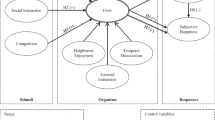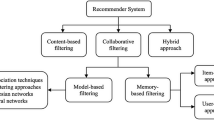Abstract
With the increasing populations of the smartphones and mobile devices these years, the majority of people have played the mobile or online games on their smartphones. As such users have rapidly increased, this research is to propose an innovative service that can automatically recommend the users the appropriate online games as their optional references. In order for market competition, the most online games’ enterprises need to develop and sell the newer online game products or versions continuously for the customers who like to play online games. Now that the types and markets of online games have had the more diverse along with the sustainable development of online game products over time. This research is to propose an integrative analysis from a large amount of data -users’ preference sequences. Firstly, the research utilizes a sequence recommendation technology that can be used to analyze their preference sequences of online game’s types based on other similar users’ sequence preference data. In other words, these recommended online game’s types that can be generated according to the relationships between the query user’s preferences and users themselves. All sequences from numerous data are accumulated to be the inferences of the query users’ preferences. Secondly, the research also utilizes data mining methodology to explore the possibilities of different product mix of game types from numerous user data. For the main methodology, this research uses a ‘partial user ranking algorithm’ to analyze group ranking of online games based on similar users. The purpose is to explore how the players can be recommended based on the other users’ priorities, as well as the product mix of game types which can be the potential business trends come to markets. Furthermore, this study contributes to a research implication for online game industry, and the results also could be the business references of game combinations and product design.




Similar content being viewed by others
Reference
Alan, D. T., & Allison, M. P. (2009). Mathematics and politics: strategy, voting, power, and proof. LLC: Springer Science + Business Media.
Amartya, S. (1995). Rationality and social choice. The American Economic Review, 85(1), 1–24.
Chang, W. C. (2002). Online game software design factor and user satisfaction. Master thesis. Department of Information Management, Tamkang University.
Chen, Y. L., & Cheng, L. C. (2009). Mining maximum consensus sequences from group ranking data. European Journal of Operational Research, 198(1), 241–251.
Chen, Y. L., & Cheng, L. C. (2010). An approach to group ranking decisions in a dynamic environment. Decision Support Systems, 48(4), 622–634.
Chen-Hsiung, L. (2012). Online game classification: take APP STORE as example,master thesis of executive master of business administration, School of Management, National Central University.
Chia-Husn, F. (2007). Consumer behavior of online game player, Unpublished master thesis. Shih Hsin University: Department of publish relations and advertising.
Chin-Lung, H., & Hsi-Peng, L. (2007). Consumer behavior in online game communities: a motivational factor perspective. Computers in Human Behavior., 23(3), 1642–1659.
Dong, C. H. (2001). Study of online game behavior: network player. Master thesis of Information Management, Nanhua University.
Eibe, F., Mark, H., Len, T., Geoffrey, H., & Ian, H. W. (2004). Data mining in bioinformatics using Weka. Bioinformatics Applications Note, 20(15), 2479–2481.
Fu, Z., & Eng, J. (2014). Achieving effective cloud search services: multi-keyword ranked search over encrypted cloud data search over encrypted cloud data supporting synonym query. IEEE Transactions on Consumer Electronics, 164–172.
Fu, Z., Shu, J., Sun, X., Linge, N. (2014). Smart cloud search services: verifiable keyword-based semantic search over encrypted cloud data. IEEE Transactions on Consumer Electronic, 60(4), 762–770.
Hao-Erl, Y., Chi-Chuan, W., & Kuang-Cheng, W. (2009). An empirical analysis of online game service satisfaction and loyalty. Expert Systems with Applications, 36(2), Part 1, 1816–1825.
Helena, C., & Mark, D. G. (2007). Social interactions in massively multiplayer online role-playing gamers. CyberPsychology & Behavior, 10(4), 21.
Hsi-Peng, L., & Shu-ming, W. (2008). The role of internet addiction in online game loyalty: an exploratory study. Internet Research, 18(5), 499–519.
Li, L. C. (1998). Civil voting: analysis of social choice theory. Master Thesis of Institute of Politic Science,National Sun Yat-san University.
Lin, C-L. (2003). Player attributes of Multi-player on online role-playing game, master thesis, Department of computer science and information management, Providence University.
Lyle, H. U., Dean, P. F. (1998). Clustering methods for Collaborative Filtering. 1998 AAAI Workshop on Recommendation Systems.
Marcus, D. C., Ray, B. (2006). Using massively multiplayer online role-playing games for online learning. Distance Education, 27(2), 187–196.
Mark, O., & Jon, H. (2001). Clustering items for Collaborative Filtering. Minneapolis: Dept. of Computer Science and Engineering University of Minnesota.
Nick, Y. (2006). Motivations for play in online games. CyberPsychology & behavior, 9(6). January 4, 2007.
Pennock, D. M., Horvitz, E., & C, L. G. (2000). Social choice theory and recommender systems: analysis of the axiomatic foundations of collaborative filtering. Proceeding UAI’00 Proceedings of the Sixteenth conference on Uncertainty in artificial intelligence, 437–480.
Roger, B. M. (1996). Fundamentals of social choice theory. Quarterly Journal of Political Science, 8(3), 305–337.
Shen-lin, H. (2004). Attraction of online game to customer satisfaction, master thesis. Department of business administration, Dong Hua University.
Tyler, L., & Craig, B. (2011). Budgeted social choice: from consensus to personalized decision making. Proceeding IJCAI’11 Proceedings of theTwenty-Second International Joint Conference on Artificial Intelligence, 1, 280–286.
Yee-Hsun, H. (2011). Design of brand ranking with recommend group decision system. Master Thesis of Informaton Management, Fu-Jen Catholic University.
Author information
Authors and Affiliations
Corresponding author
Rights and permissions
About this article
Cite this article
Tung, WF., Lan, YJ. Analyzing social choice and group ranking of online games for product mix innovation. Inf Syst Front 19, 1301–1309 (2017). https://doi.org/10.1007/s10796-017-9769-8
Published:
Issue Date:
DOI: https://doi.org/10.1007/s10796-017-9769-8




